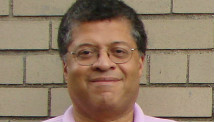NEW YORK (Reuters) - The Nasdaq composite stock index closed at a 12-year high and the S&P 500 index at a five-year high, boosted by gains in technology shares and stronger overseas trade figures.
The S&P 500 also posted a sixth straight week of gains for the first time since August.
The technology sector led the day's gains, with the S&P 500 technology index <.splrct> up 1.0 percent. Gains in professional network platform LinkedIn Corp
Shares of LinkedIn jumped 21.3 percent to $150.48 after the social networking site announced strong quarterly profits and gave a bullish forecast for the year.
AOL Inc shares rose 7.4 percent to $33.72 after the online company reported higher quarterly profit, boosted by a 13 percent rise in advertising sales.
Data showed Chinese exports grew more than expected, a positive sign for the global economy. The U.S. trade deficit narrowed in December, suggesting the U.S. economy likely grew in the fourth quarter instead of contracting slightly as originally reported by the U.S. government.
"That may have sent a ray of optimism," said Fred Dickson, chief market strategist at D.A. Davidson & Co in Lake Oswego, Oregon.
Trading volume on Friday was below average for the week as a blizzard swept into the northeastern United States.
The U.S. stock market has posted strong gains since the start of the year, with the S&P 500 up 6.4 percent since December 31. The advance has slowed in recent days, with fourth-quarter earnings winding down and few incentives to continue the rally on the horizon.
"I think we're in the middle of a trading range and I'd put plus or minus 5.0 percent around it. Fundamental factors are best described as neutral," Dickson said.
The Dow Jones industrial average <.dji> ended up 48.92 points, or 0.35 percent, at 13,992.97. The Standard & Poor's 500 Index <.spx> was up 8.54 points, or 0.57 percent, at 1,517.93. The Nasdaq Composite Index <.ixic> was up 28.74 points, or 0.91 percent, at 3,193.87, its highest closing level since November 2000.
For the week, the Dow was down 0.1 percent, the S&P 500 was up 0.3 percent and the Nasdaq up 0.5 percent.
Shares of Dell
Dell's largest independent shareholder, Southeastern Asset Management, said it plans to oppose the buyout of the personal computer maker, setting up a battle for founder Michael Dell.
Signs of economic strength overseas buoyed sentiment on Wall Street. Chinese exports grew more than expected in January, while imports climbed 28.8 percent, highlighting robust domestic demand. German data showed a 2012 surplus that was the nation's second highest in more than 60 years, an indication of the underlying strength of Europe's biggest economy.
Separately, U.S. economic data showed the trade deficit shrank in December to $38.5 billion, its narrowest in nearly three years, indicating the economy did much better in the fourth quarter than initially estimated.
Earnings have mostly come in stronger than expected since the start of the reporting period. Fourth-quarter earnings for S&P 500 companies now are estimated up 5.2 percent versus a year ago, according to Thomson Reuters data. That contrasts with a 1.9 percent growth forecast at the start of the earnings season.
Molina Healthcare Inc
The CBOE Volatility index <.vix>, Wall Street's so-called fear gauge, was down 3.6 percent at 13.02. The gauge, a key measure of market expectations of short-term volatility, generally moves inversely to the S&P 500.
"I'm watching the 14 level closely" on the CBOE Volatility index, said Bryan Sapp, senior trading analyst at Schaeffer's Investment Research. "The break below it at the beginning of the year signaled the sharp rally in January, and a rally back above it could be a sign to exercise some caution."
Volume was roughly 5.6 billion shares traded on the New York Stock Exchange, the Nasdaq and the NYSE MKT, compared with the 2012 average daily closing volume of about 6.45 billion.
Advancers outpaced decliners on the NYSE by nearly 2 to 1 and on the Nasdaq by almost 5 to 3.
(Additional reporting by Angela Moon; Editing by Bernadette Baum, Nick Zieminski, Kenneth Barry and Andrew Hay)



